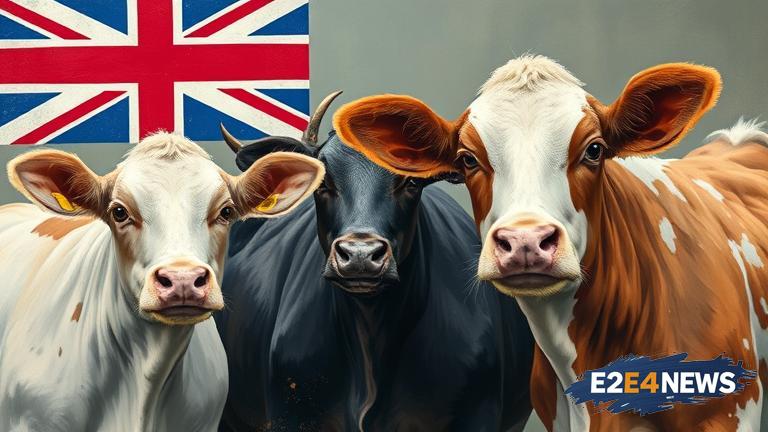The United Kingdom’s exit from the European Union has raised significant concerns regarding animal welfare standards. As the UK navigates its new relationship with the EU, there are fears that a ‘reset’ deal could lead to a compromise on animal protection. The UK has historically been at the forefront of animal welfare, with stringent laws and regulations in place to safeguard animal rights. However, with the country’s departure from the EU, there is a risk that these standards could be watered down. Critics argue that a ‘reset’ deal could lead to a relaxation of animal welfare laws, potentially allowing for the importation of products from countries with lower animal welfare standards. This could have devastating consequences for animal welfare in the UK, with many arguing that it would be a betrayal of the country’s commitment to protecting animals. The UK’s animal welfare laws are currently enshrined in EU law, which provides a high level of protection for animals. However, with the UK’s exit from the EU, these laws are no longer applicable, leaving a vacuum that could be filled by weaker regulations. The UK government has pledged to maintain high animal welfare standards, but critics argue that this is not enough. They point to the fact that the UK has already begun to diverge from EU animal welfare laws, with the government opting out of certain regulations. This has led to concerns that the UK is heading down a path of deregulation, which could have serious consequences for animal welfare. The issue is not just limited to the UK, with the EU also facing challenges in maintaining high animal welfare standards. The EU has a reputation for having some of the highest animal welfare standards in the world, but there are concerns that these standards could be compromised in trade deals with non-EU countries. The UK’s departure from the EU has also raised questions about the future of animal welfare in the country. Many are calling for the UK government to enshrine animal welfare laws in domestic legislation, to ensure that standards are maintained. However, this is not without its challenges, with some arguing that it could be difficult to replicate the EU’s complex system of animal welfare laws. Despite these challenges, many believe that it is essential for the UK to maintain high animal welfare standards. They argue that this is not just a moral imperative, but also essential for the UK’s reputation as a leader in animal welfare. The UK’s animal welfare laws have been widely praised, and many see them as a model for other countries to follow. However, with the UK’s exit from the EU, there is a risk that these laws could be watered down, potentially damaging the UK’s reputation. The issue of animal welfare is not just limited to the UK, with many countries around the world facing challenges in maintaining high standards. The EU has been at the forefront of efforts to promote animal welfare, but there are concerns that the UK’s departure could undermine these efforts. As the UK navigates its new relationship with the EU, it is essential that animal welfare standards are maintained. This will require careful consideration and negotiation, to ensure that the UK’s high standards are not compromised. The UK government must prioritize animal welfare, and work to ensure that standards are maintained. This will not only be good for animals, but also for the UK’s reputation as a leader in animal welfare. The future of animal welfare in the UK is uncertain, but one thing is clear: it is essential that high standards are maintained. The UK’s departure from the EU has raised significant challenges, but it also presents an opportunity for the UK to reaffirm its commitment to animal welfare. By prioritizing animal welfare, the UK can maintain its reputation as a leader in this field, and ensure that animals are protected from harm.





